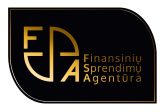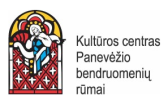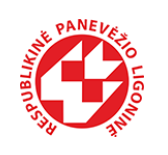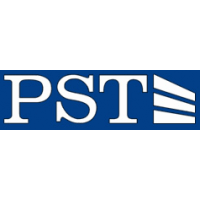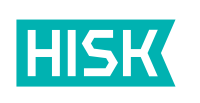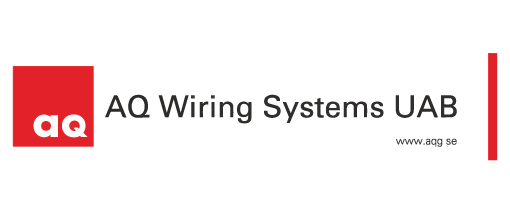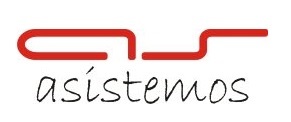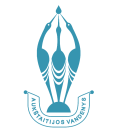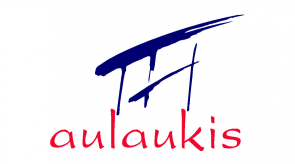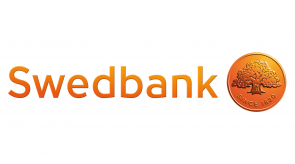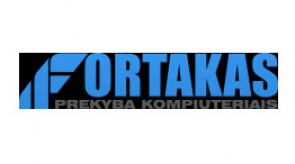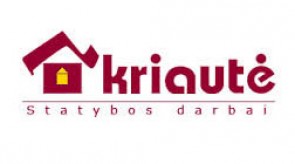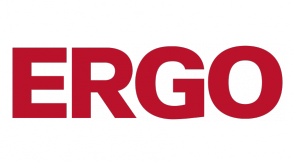Pre-school and pre-primary education
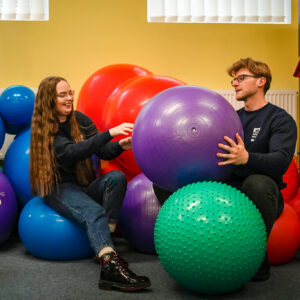 Study mode and duration: full-time (3 years), part-time (4 years).
Study mode and duration: full-time (3 years), part-time (4 years).
Study programme is carried out: Panevėžio kolegija/State Higher Education Institution, Social Science Faculty
Degree and professional qualification: Professional Bachelor of Education, Professional Qualification of Teacher
Volume of study programme in credits: 180 ETCS credit
Why choose this programme: The pre-school and pre-primary education study programme is designed for those who love children, want to learn about the process of their education, aspire to become professionals capable of successfully integrating into the labour market and the pedagogical society, and who expect to have an interesting and creative job. Preschool and pre-primary education teachers are currently in high demand, which is reflected in the high level of employment of graduates of the programme in terms of their educational qualifications.
Study subjects (full-time studies) (this study plan applies form 2019)
| 1 course | 2 course | 3 course |
| General subjects of college studies | ||
| Professional Language Culture | ||
| Safe Work and Civil Safety | ||
| Professional Foreign Language | ||
| Entrepreneurial Basics | ||
| Subjects of study field | ||
| Educational Theory and Practice | Curriculum Modelling | Pedagogical Research Methodology |
| General and Development Psychology | Special Pedagogy and Special Psychology | Pedagogical Studies Final Thesis |
| Pre-school and Pre-primary Pedagogy | Family Pedagogy and Psychology | Moral Education and Formation of Social Skills |
| Visual Expression | Visual Expression | Physical Activity Education of the Child |
| Cognition of the Environment | Mathematics cognition | Events Organisation |
| Child Health and Hygiene | Musical and Theatrical Expression | Law and Children’s Rights Protection |
| Information Communication Technologies and their Use in Education | Child Language Education and Children’s Literature | Educational Management and Professional Ethics |
| Alternative subjects* | ||
| A1 Educational Project Management / Leadership and Team Building | ||
| A2 Movement Games and Dance in Kindergarten / Sport Games in Kindergarten | ||
| A3 Intercultural Education / Ethnoculture and Folklore | ||
| Optional subjects set by the College** | ||
| PD1 | ||
| PD2 | ||
| Practices | ||
| Cognitive Practice | Teaching Assistant Practice | Integrated Practice in Pre-primary Groups |
| Integrated Practice in Pre-school Groups | Final Practice | |
| Final Thesis | ||
| Final Thesis | ||
*A1, A2, A3 – alternatively chosen subjects foreseen by the study field programme committee
**PD1, PD2 – optional subjects foreseen by the order of the Director
Study subjects (part-time studies) (this study plan applies form 2019)
| 1 course | 2 course | 3 course | 4 course |
| General subjects of college studies | |||
| Professional Language Culture | Entrepreneurial Basics | ||
| Safe Work and Civil Safety | |||
| Professional Foreign Language | |||
| Subjects of study field | |||
| Educational Theory and Practice | Curriculum Modelling | Cognition of the Environment | Pedagogical Research Methodology |
| General and Developmental Psychology | Special Education and Special Psychology | Mathematics cognition | Pedagogical Studies Final Thesis |
| Pre-school and Pre-primary Pedagogy | Family Pedagogy and Psychology | Physical Activity Education of the Child | Events Organisation |
| Visual Expression | Visual Expression | Educational Management and Professional Ethics | Law and Children’s Rights Protection |
| Child Health and Hygiene | Child Language Education and Children’s Literature | Child Language Education and Children’s Literature | |
| Information Communication Technologies and their Use in the Education | Moral Education and Formation of Social Skills | ||
| Musical and Theatrical Expression | |||
| Alternative subjects* | |||
| A1 Educational Project Management / Leadership and Team Building | A2 Movement Games and Dance in Kindergarten / Sport Games in Kindergarten | ||
| A3 Intercultural Education / Ethnoculture and Folklore | |||
| Optional subjects set by the College** | |||
| PD1 | |||
| PD2 | |||
| Practices | |||
| Cognitive Practice | Integrated Practice in Pre-school Groups | Integrated Practice in Pre-primary Groups | |
| Teaching Assistant Practice | Final Practice | ||
| Final Thesis | |||
| Final Thesis | |||
*A1, A2, A3 – alternatively chosen subjects foreseen by the study field programme committee
**PD1, PD2 – optional subjects foreseen by the order of the Director
Attention to practice: students develop their practical skills in professional practice placements in the best pre-school and pre-primary education institutions, in groups of children of different ages.
Opportunities for international studies: students have the opportunity to study under the ERASMUS student exchange programme.
Career opportunities: graduates will be able to work in all types of public and private pre-school and pre-primary education institutions, to set up children’s employment centres, private pre-school education institutions, and to continue their studies in Lithuanian and foreign higher education institutions.
The aim of the study programme is to train pre-school and pre-primary teachers who are able to take into account children’s natural abilities, their individual experiences and changing needs, and who are able to organise quality education for pre-school and pre-primary children in the context of globalisation, social diversity and new technologies.
Learning outcomes:
- The students will be familiar with contemporary educational theories, educational trends, the application of pre-school and pre-primary education strategies, methods, technologies in the educational environment, methods of assessing achievements.
- They will acquire knowledge about educational policy orientation, sustainable development of the individual and society, educational management and leadership, as well as knowledge of documents regulating education.
- They will be able to find and analyse scientific and informative literature on education and training, apply modern methods of collecting, analysing and systematising information, and carry out research in professional activities.
- They will be able to identify and solve problems in pre-school and pre-primary education and develop inter-institutional cooperation.
- They will recognise children’s general and individual developmental patterns, peculiarities and expressions, assess the educational needs of children with special educational needs and gifted children, and personalise ways of meeting them.
- They will be able to model, individualise and differentiate the content of pre-school and pre-primary education, plan and organise the educational process, taking into account the educational context.
- They will be able to apply methods for assessing children’s achievements and progress, promote individual progress, and develop competence in learning.
- They will be able to create a safe, tolerant and self-expressive educational environment, enabling the development of children’s values and social skills.
- They will be able to use various educational tools, digital technologies and equipment in the educational process, use the Lithuanian language correctly and communicate in a foreign language in their professional activities.
- They will be able to work collaboratively, as part of a team, coordinate project activities and participate in professional networks.
- They will be able to maintain their own cultural identity and that of their pupils, as well as fostering respect for cultural diversity.
- They will be able to reflect on their pedagogical activity, define directions for personal development and systematically develop their general and specific competences; they will be guided by values of social responsibility.





